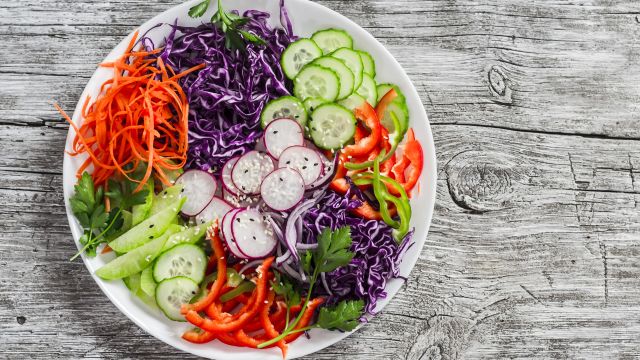Have you ever wondered what’s behind the vibrant yellow, orange and red hue in fruits and vegetables? The nutrient is call “lutein,” and it’s just one of 4000 health-promoting phytochemicals found in plants. There is now impressive evidence that it offers benefits to your brain health as well as your eyes and heart.
Our bodies can only get lutein from food, especially carrots, oranges, papaya, tomatoes, melon and summer squash. Green produce, notably leafy greens, broccoli, green peas and Brussel sprouts, is also loaded with lutein.
Food For Your Brain
Lutein is linked to a part of the brain that preserves what researchers call “crystallized intelligence,” which is the ability to use the skills and knowledge you have acquired over a lifetime. A 2016 study published in the journal Frontiers in Aging Neuroscience followed a group of 76 healthy adults between the ages of 65 and 75. Researchers found that those with more lutein in the blood performed better on vocabulary and reasoning tests.
Food For Your Eyes
This powerful nutrient is sometimes called an “eye vitamin” because it improves vision in people with cataracts and filters out the ultra-violet light that can damage the retina. A 2016 research review published in the International Journal of Retina and Vitreous examined carotenoids, which is the formal name of the color pigments in plants that includes lutein and zeaxanthin. Both these nutrients are present in the retina of the eye. The study found that people who took in more lutein and zeaxanthin had improved visual function and had decreased risk of age-related macular degeneration.
Food For Your Heart
Ever more research demonstrates the enormous benefits of plants for your heart. A 2015 study by an Italian team published in the Journal of Food and Nutrition Research found that the antioxidant properties of carotenoids help to protect against heart disease. Researchers concluded that in addition to regular exercise, quitting smoking and reducing sodium and cholesterol, introducing carotenoids into your diet would also be beneficial.
Another 2016 meta-analysis published in the American Journal of Clinical Nutrition also confirmed that people who eat more lutein-rich foods, and therefore had more lutein in the blood, had healthier hearts. This followed earlier studies showing that people with more lutein in their blood also have less plaque in their arteries.
Food for Your Cells
Promising research shows that lutein may protect our cells from damage caused by high blood sugar. High blood sugar induces inflammation, a trigger for the many chronic complications of diabetes. According to a 2016 study published in the journal Advanced Nutrition the antioxidant effects of compounds like lutein act against metabolic disorders, including diabetes. A study published in 2008 in the Journal of Physiology and Biochemistry showed that lutein also protects the immune system.
Daily Requirements
Your body cannot make lutein, so it is essential to get this powerful phytochemical from food. But not to worry, you can easily meet your daily requirements of at least 10 milligrams through your diet. After all, just one cup of kale has more than 22 milligrams of lutein. A cup of collard or turnip greens has about 18 milligrams; a cup of spinach has about 7 and you’ll get a little over 3 in that much broccoli. To reduce symptoms of eye or skin disorders, you’ll need between 6 milligrams and 30 milligrams daily.
To learn about another type of phytochemical that can positively impact your health, read Don’t Skip A Beet: Why this Vibrant Veggie Naturally Increases Blood Flow.
This content was originally published on Ornish Living.






